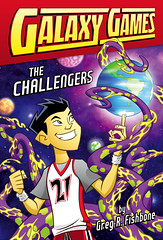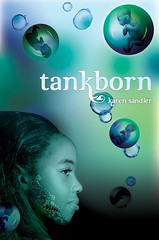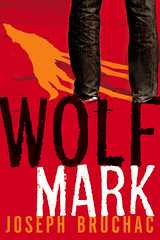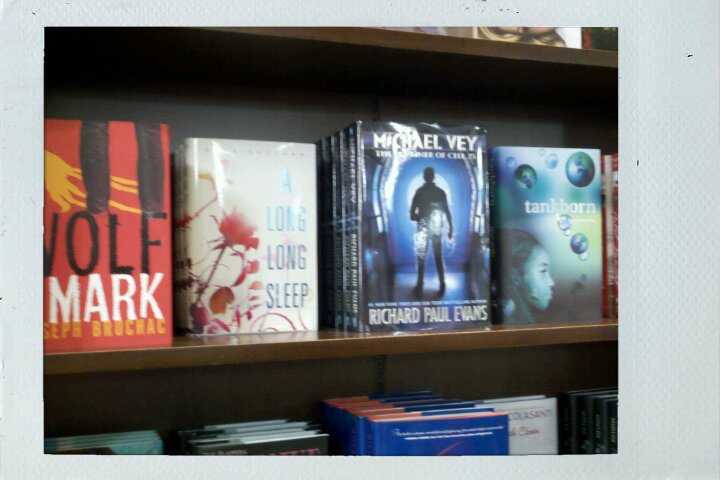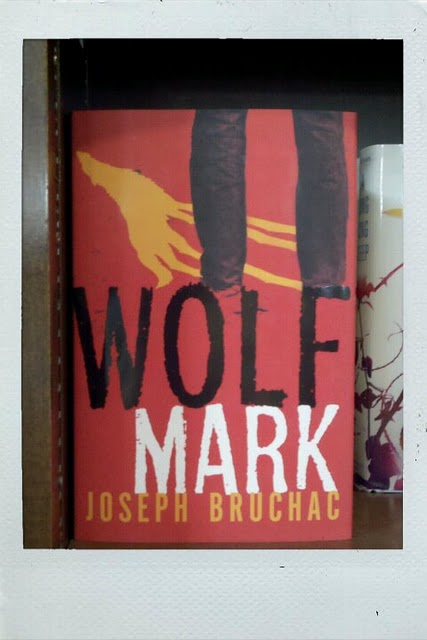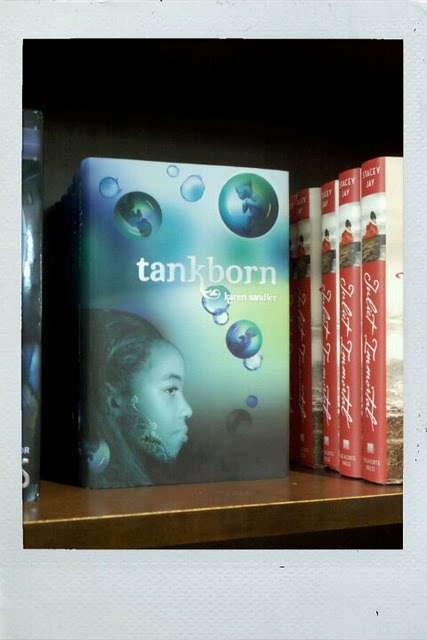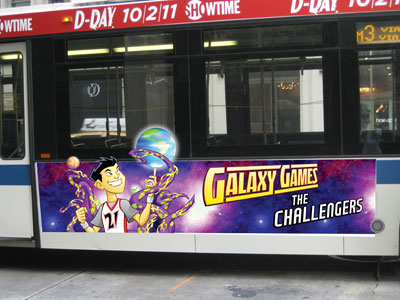
Let’s take a look at all the things happening online for the launch of Tu’s first three books. First of all, see what our publisher Jason Low would do if we had a million dollars to promote our first three books. Too bad we’re not millionaires!
The Challengers
First up, The Challengers, book 1 of the Galaxy Games series. To celebrate, author Greg Fishbone is currently on a month-long blog tour that includes a game that readers can play along, finding puzzle pieces to fit together and win prizes. To find out more on how to play the game, go to http://galaxygam.es/tour/ and find out what puzzle piece they’re on. Note that there’s also a giveaway—poke around on the site to find more ways to enter!
You can also follow Greg on Twitter, like the Galaxy Games series on Facebook, or like Greg on Facebook for more news as it happens.
Here’s what Publishers Weekly had to say about Galaxy Games:
Complemented by Beavers’s comic book style artwork, Fishbone’s narrative is ripe with kid-friendly humor—i.e., Earth’s radio and TV transmissions are picked up by the toilets on the Mrendarian ship—and many of the plot twists could be straight from the ‘what if’ imaginings of a fourth-grade classroom. Though Fishbone clearly sets up the next book, he gives Tyler enough of a victory to leave readers satisfied. —Publishers Weekly
Wolf Mark
Joseph Bruchac, author of Wolf Mark, recently shared a video on YouTube talking about why he wrote the book, his inspiration, and other thoughts on this exciting suspense-filled paranormal thriller. Check it out!
Here’s what Publishers Weekly and Kirkus have to say about Wolf Mark, too:
Bruchac (Dragon Castle) delivers a fun twist on werewolf stories mixed with some mad science and espionage. . . . Bruchac adeptly incorporates characters of various heritages: Luke is Native American; his best friend/crush, Meena, is Pakistani; and the Sunglass Mafia a group of students who are more than they seem are from eastern Russia. Luke also possesses a hefty amount of cultural and political awareness to go with his combat and espionage expertise, which serve him well. . . . [T]he action and Luke’s narration carry the book nicely. —Publishers Weekly
A loner teen finds himself caught up in a paranormal paramilitary threat but he has both untapped personal resources and some unlikely allies to help him out. Ever since his mother died, his father-a sometime Special Ops-type agent who happens to be of Native American descent-has been worse than useless. Lucas just concentrates on doing well in school and mooning over the beautiful daughter of one of the Pakistani scientists working at the new Romanian-owned top-secret facility in town. He goes out of his way to avoid the Sunglass Mafia, a bunch of unusually pale Russian students. But when his father is kidnapped and gives him a coded message by telephone, Lucas discovers that his heritage is more complicated and powerful than he had thought. . . . [T]he scenes with the Sunglass Mafia both defy stereotypes and manage to be very funny, and when the action kicks in, it does so in overdrive. A solid entry into the paranormal market, with an appealingly different hero.—Kirkus Reviews
Tankborn
Karen Sandler, the author of Tankborn, has already had one book signing in her area of northern California. She’s also been doing a lot of interviews lately. Check out her latest on the Kirkus Reviews blog. An excerpt:
You’ve set your novel in the futuristic world of Loka. Tell us how you went about imagining that world.
The imagining of Loka happened in layers. At first, I had only a vague idea of what the planet was like. I knew it was ugly, barren of trees, except for the symbiotic junk trees, the plant life scruffy, the creatures hideous by Earth standards. As I made my way through the book, new creatures or plants would pop up, and I’d add them to the taxonomy, adding another layer.
Then in the editing process … a light bulb came on, and I decided that the bulk of Loka’s creatures were arachnid-based—creatures I’d already described were changed to fit the spider-like model. I retained a couple mammals—the drom and seycat—but everything else became eight-legged and a bit on the creepy side.
We’ve gotten a lot more reviews in for this one since my last review roundup. I’ll only share a couple here, for the sake of brevity—this post is already quite long!
I strongly feel that Tankborn is just what the genre has been waiting for. There are a lot of complaints these days about cookie cutter dystopians, and authors who can’t be bothered to consider plausibility or worldbuilding. Sandler’s writing punches those complaints in the face….As for the story, it’s solid, nicely paced, and thoughtful. Kayla and Mishalla are admirable girls, though their upbringing has (understandably) warped their perceptions of the world around them. Kayla’s growth is fascinating, particularly her struggles with religion. —Intergalactic Academy
It’s been a while since I’ve picked up a book that is mainly science fiction and enjoyed it so much. Karen Sandler introduces us to Loka, a planet that the people of Earth colonize in the future due to Earth’s climate crumbling down, and in the process introduces us to a whole new vocabulary. Names of plants, animals, inanimate objects, all strange names for strange things. It is truly a fascinating new world. Fans of dystopia and a little known movie called “Avatar” will enjoy this.—JJ iReads
The world building is very well done and definitely the highlight of this novel. It is a completely fictional, but believable, culture that is created in this book. It is interesting that even though it’s very far in the future, it isn’t the type of sci-fi where there’s robots and lasers and spaceships everywhere. In some ways, the culture felt a bit archaic, what with the strict social hierarchy and all. And I don’t know why, but I kind of imagined their clothes was kind of traditional Indian-style, but that just be because of the clear Indian inspiration for the caste system in this book. Anyway, I liked how the culture and the story world was sort of antiquated but mixed with, obviously, futuristic stuff, like shock guns, and how GENs are kind of like computers — using a Datapod, one can upload and download information from a GEN’s annexed brain (as opposed to their bare brain, which, I gather, is their normal brain, the kind you and I have). The world is quite unique due to this mixture of the old and the new.—SkyInk.net
Check out her main site, blog, and Twitter. Like Tankborn on Facebook, too.
